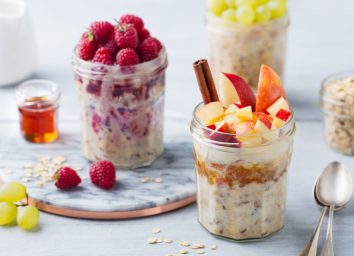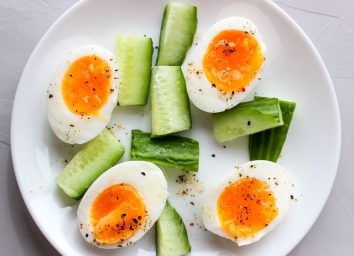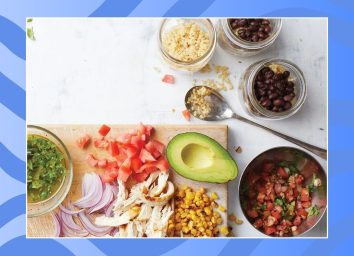12 Easy Ingredients for the World's Healthiest Salad
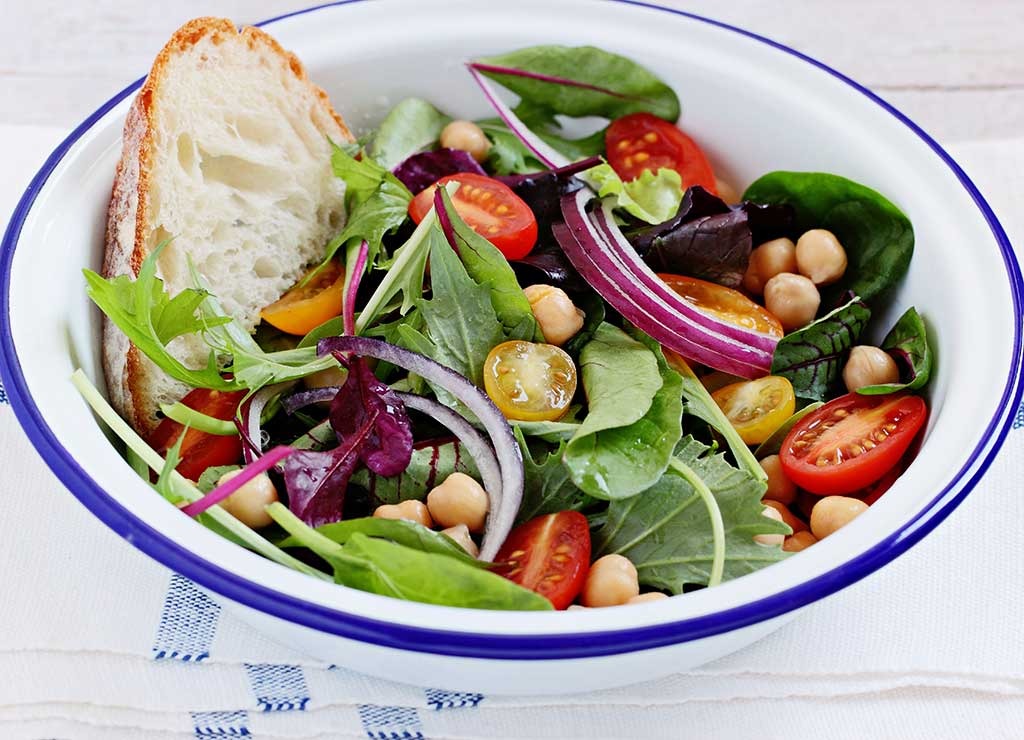
If a colorful diet is a healthy one, it's easy to see why a rainbow coalition in your salad is one of the most efficient ways to get the bulk of your day's required nutrients. The right salad ingredients — like the ones we're about to tell you about! — are bursting with antioxidants, essential minerals, fiber, healthy fats, and protein. Plus: they're a lot tastier than a multivitamin!
A study by the Louisiana State University School of Public Health found that people who eat a salad a day are more likely to get their recommended daily intake of many essential nutrients. What's more, the study authors note that men who eat more than 60 grams of vegetables a day increase their lifespan by two years. This nutrient-filled cornucopia will also leave you feeling full and keep your flat-belly goals going strong into lunchtime.
SPINACH
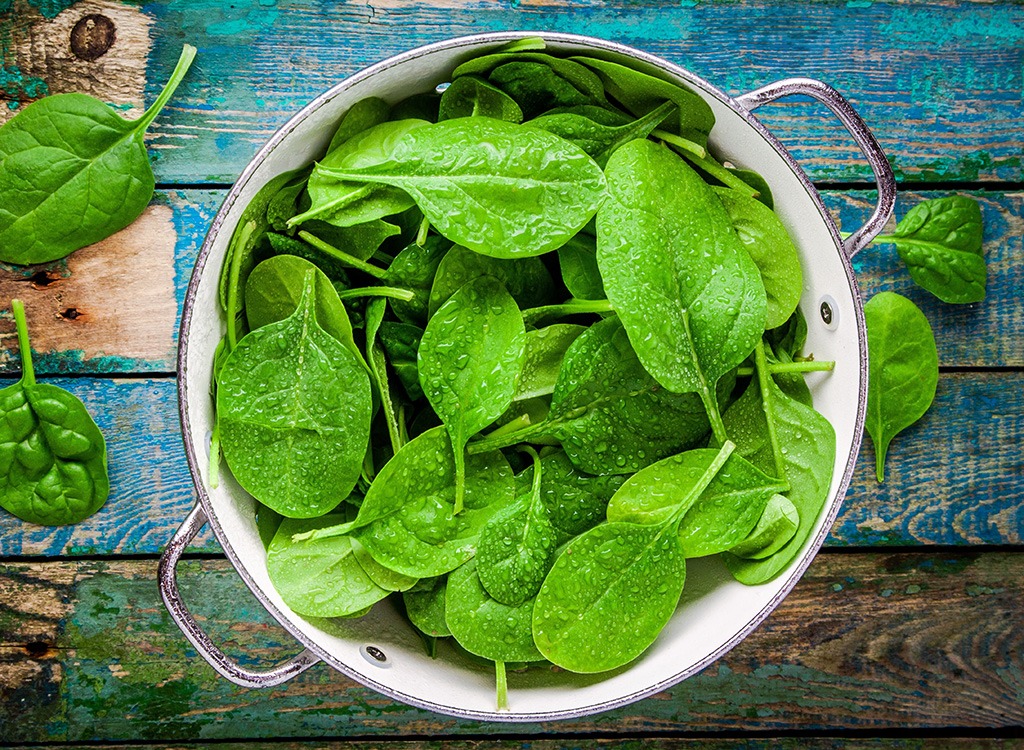
One cup of spinach gives you 58 micrograms (mcg) of folate. According to a report in Nutrition Digest, consuming folate reduces your risk of having a stroke by 12 percent and decreases your risk of developing heart disease, thanks to the nutrient's ability to reduce levels of homocysteine, an amino acid that thickens and hardens the arteries.
Other nutrients: fiber, protein, vitamin A, vitamin B6, vitamin C, vitamin E, vitamin K, calcium, and potassium
Disease-fighting power: heart disease, cancer, Alzheimer's, osteoporosis, diabetes, weight, depression
BROCCOLI

You get 294 milligrams (mg) of potassium in just three spears. According to Mayo Clinic researchers, potassium counteracts the effects of sodium by dilating blood vessels and increasing the amount of sodium excreted in your urine, thus lowering blood pressure and protecting against stroke.
Other nutrients: calcium, fiber, vitamin A, vitamin B6, vitamin C, vitamin K, folate, and lutein and zeaxanthin
Disease-fighting power: heart disease, hypertension, cancer, osteoporosis, Alzheimer's, and diabetes
KIDNEY BEANS
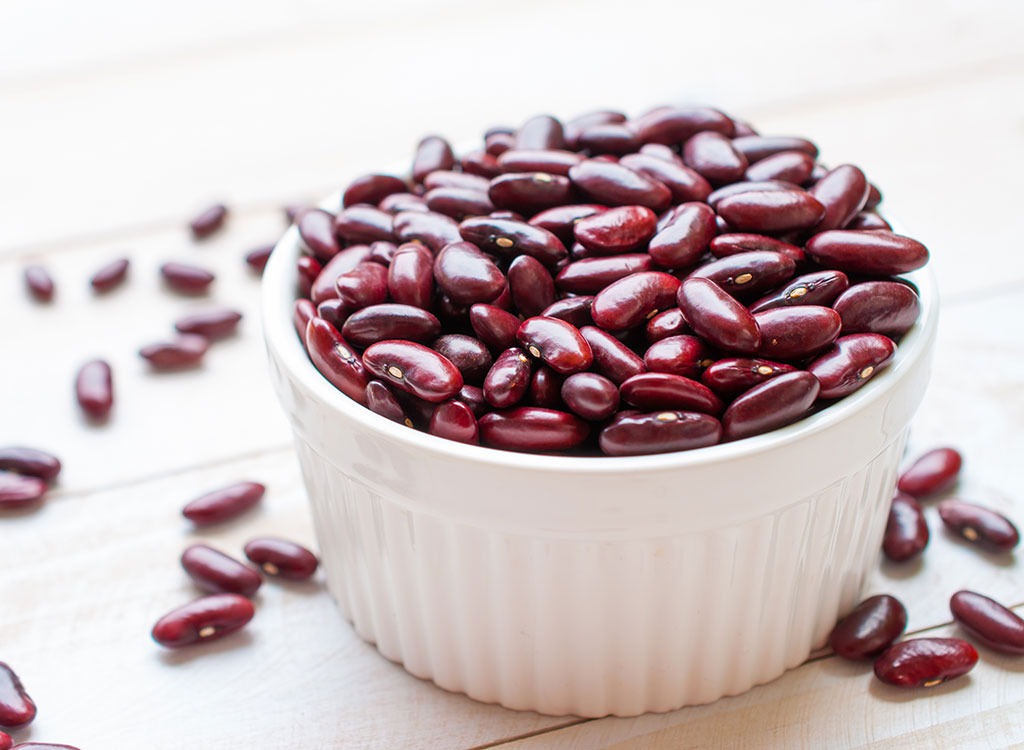
A 1/4-cup serving of red kidney beans gives you 6,630 disease-fighting antioxidants, plus a full 3 grams of fiber. As one of our go-to salad ingredients, you'll want to toss this nutrient powerhouse into all your bowls.
Other nutrients: folate
Disease-fighting power: heart disease, diabetes, cancer, and Alzheimer's
YELLOW BELL PEPPERS
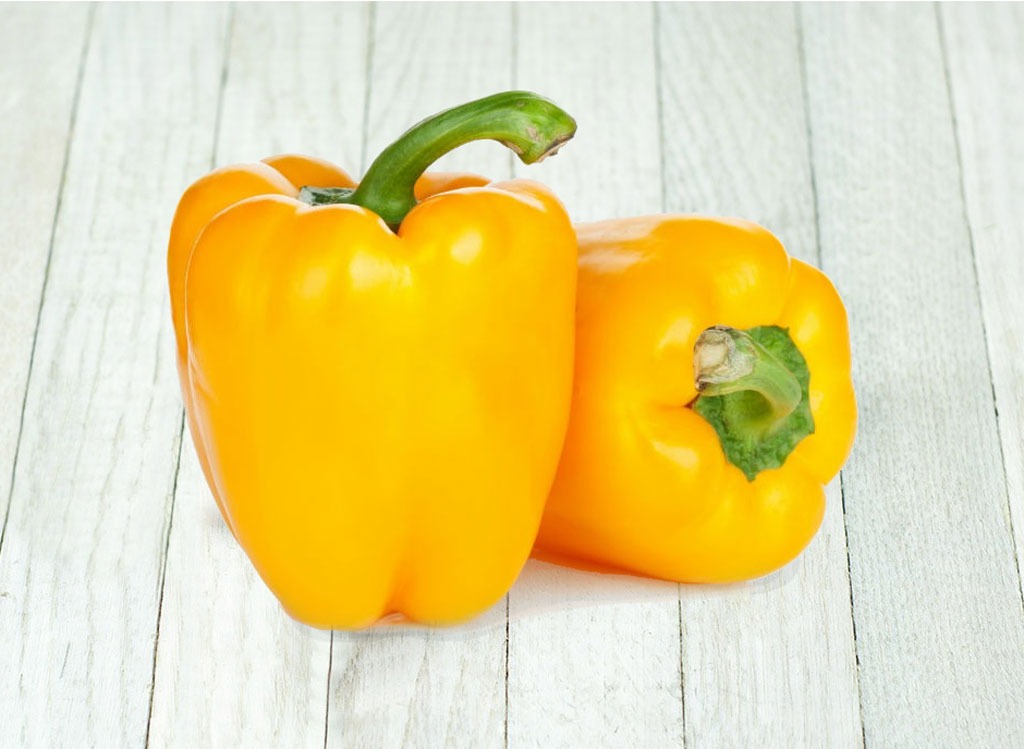
Four strips of yellow bell pepper provide 48 mg of free-radical fighting vitamin C. Nutrition researchers from Arizona State University reported that vitamin C can help with weight loss by assisting in fat oxidation, or the body's ability to burn fat.
Other nutrients: vitamin A, B6, folate, and potassium
Disease-fighting power: heart disease, cancer, Alzheimer's, weight gain, and hypertension
SWISS CHEESE
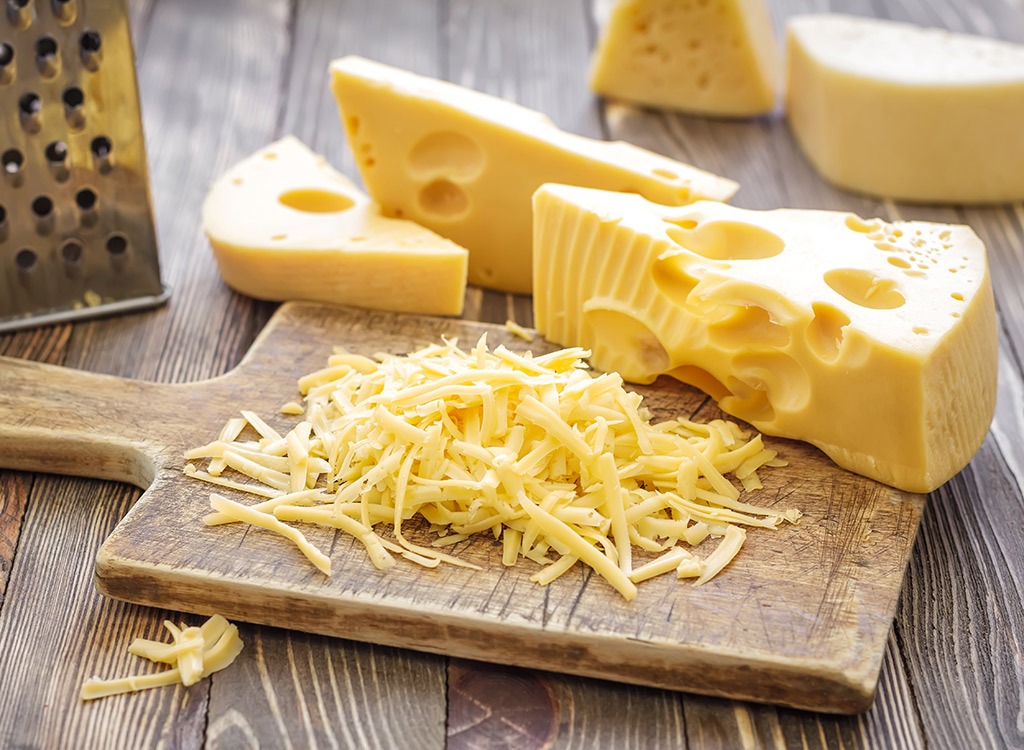
Four cubes of Swiss cheese provide 476 mg of calcium and 26 IU of vitamin D. Vitamin D has also been associated with a decrease in the risk of pancreatic, prostate, and testicular cancers.
Other nutrients: protein and vitamin B12
Disease-fighting power: osteoporosis, Alzheimer's, cancer, and stroke
CARROTS
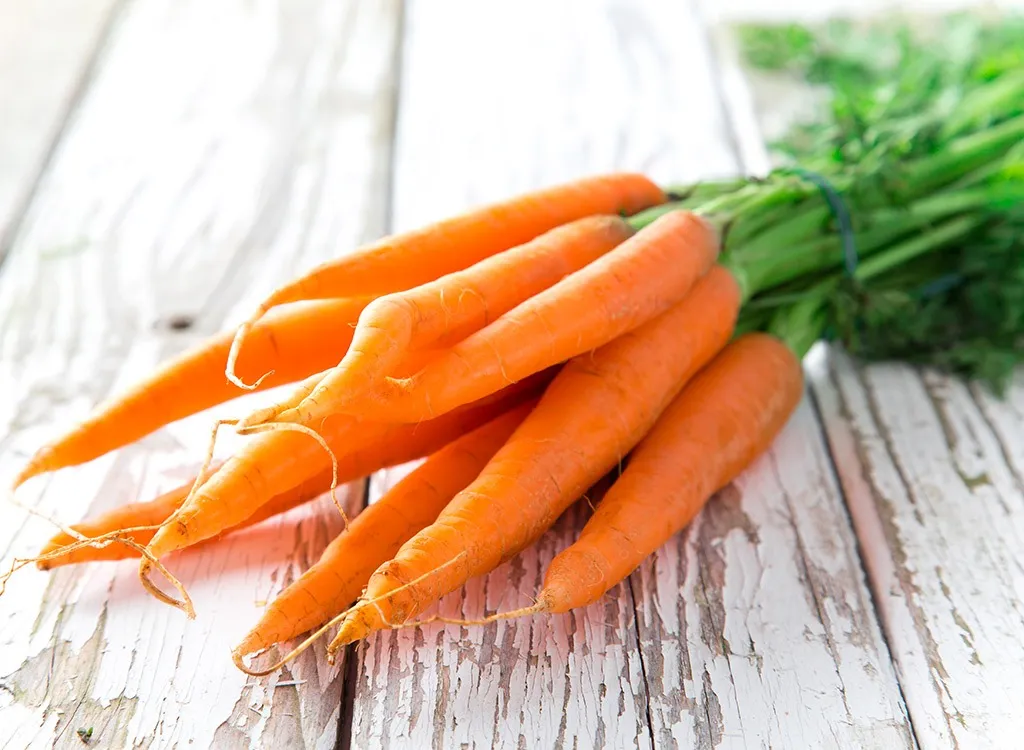
Carrots are one of the richest sources of provitamin A carotenoids, plant compounds that provide color and function as antioxidants. Just 1/4 cup of shredded carrots provides 2,279 mcg of beta-carotene and 4,623 IU of vitamin A. Vitamin A has been shown to improve vision and bone growth, help regulate the immune system, and decrease the risk of lung cancer.
Other nutrients: vitamin C, vitamin K, fiber, and potassium
Disease-fighting power: cancer, osteoporosis, weight gain, and hypertension
EXTRA-VIRGIN OLIVE OIL AND BALSAMIC VINEGAR
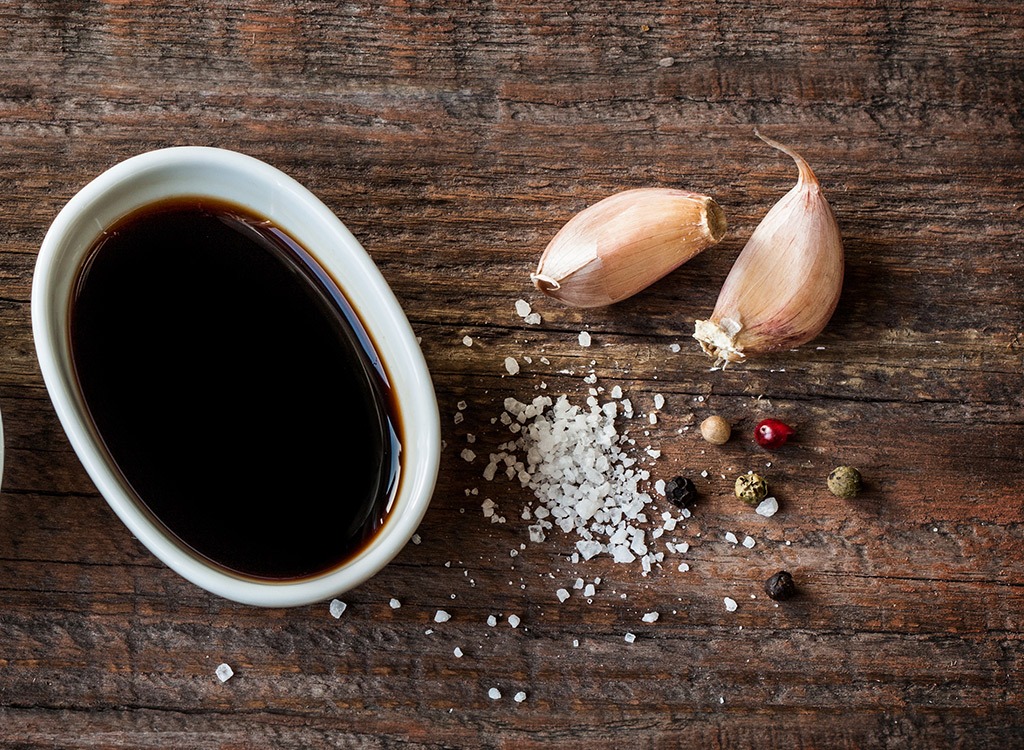
One tablespoon of olive oil delivers 10 grams of heart-healthy monounsaturated fat. Antioxidant-rich balsamic vinegar can improve vascular function when ingested with a healthy fat like olive oil, which contributes to a reduction in the risk of heart disease. Combine these two salad ingredients for the ultimate supercharged dressing!
Other nutrients: n/a
Disease-fighting power: Adding olive oil to red, green, orange, or yellow fruits and vegetables increases the amount of heart-saving, cancer-fighting, vision-boosting, immune-repairing, bone-strengthening vitamins such as A, E, and K, as well as carotenoids.
SUNFLOWER SEEDS AND FLAXSEED

One tablespoon of sunflower seeds provides 8.35 mcg of selenium. One tablespoon of flaxseed will give you 2.3 grams of omega-3 fatty acids, which are linked to reduced risk of heart disease, Alzheimer's, and depression. These crunchy salad ingredients have also been shown to inhibit cancer-cell growth.
Other nutrients: vitamin E and fiber
Disease-fighting power: heart disease, cancer, Alzheimer's, depression, and diabetes
ALMONDS
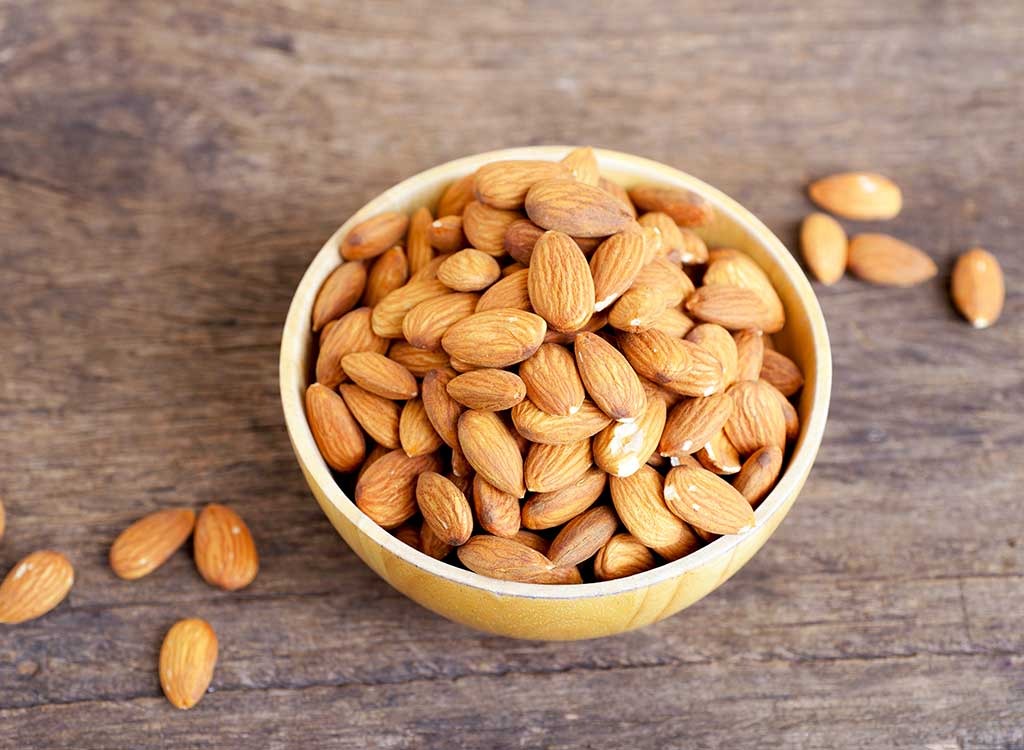
One tablespoon of almonds provides 2.2 grams of alpha-tocopherol, a type of vitamin E, which reduces the risk of Alzheimer's, according to a study in Nutrients.
Other nutrients: monounsaturated fat, protein, and fiber
Disease-fighting power: Alzheimer's, depression, cancer, heart disease, and diabetes
TOMATOES
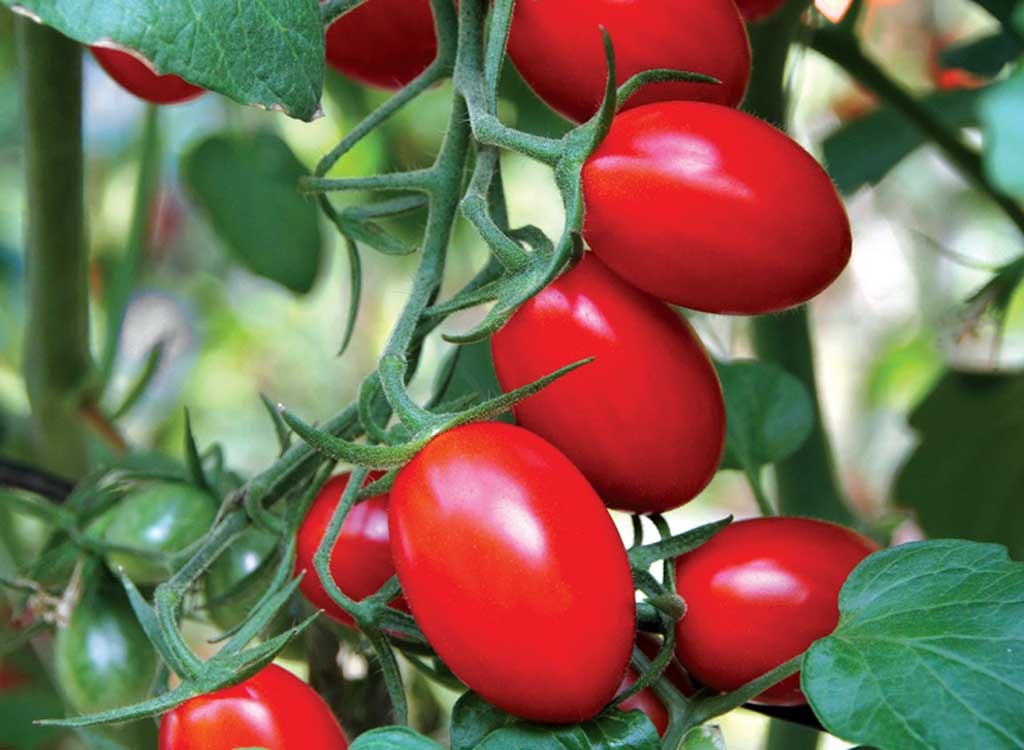
Four cherry tomatoes will give you 1,748 mcg of lycopene, a proven cancer-fighter.
Other nutrients: vitamin A, vitamin C, vitamin K, fiber, and potassium
Disease-fighting power: heart disease, cancer, osteoporosis, diabetes, and hypertension
CHUNK LIGHT TUNA
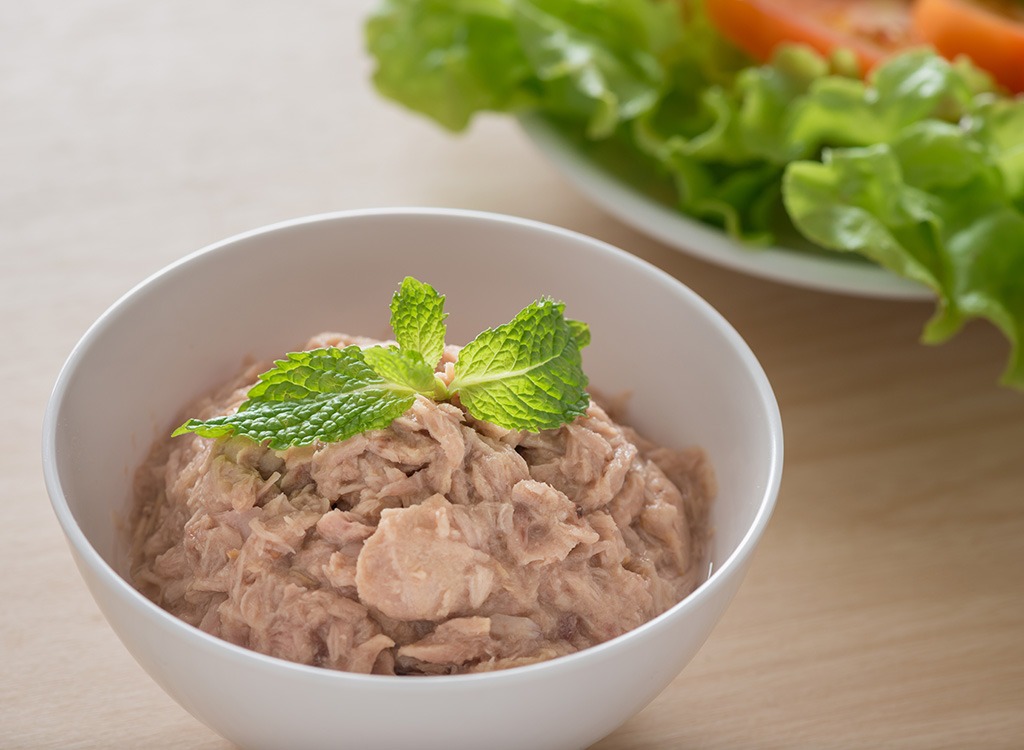
Tuna, one of the best sources of protein (and therefore one of our top salad ingredients), contains no trans fat, and a three-ounce serving of chunk light contains 11 mg of heart-healthy niacin, which has been shown to help lower cholesterol and help your body process fat. University of Rochester researchers determined that niacin raises HDL cholesterol (the good kind) and lowers triglycerides more than most statins alone.
Other nutrients: protein, selenium, and vitamin B12
Disease-fighting power: heart disease and diabetes
RED-LEAF LETTUCE
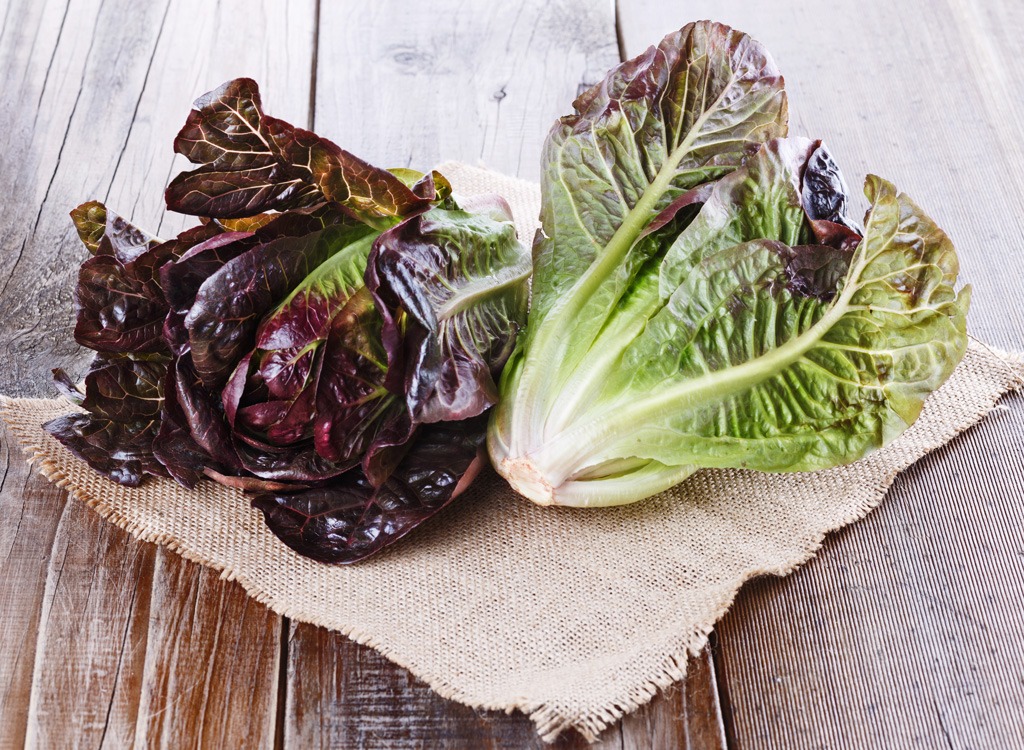
Four leaves of red-leaf lettuce contain 1,213 mcg of antioxidants, 96 mcg of vitamin K, and 1,172 mcg of the carotenoids lutein and zeaxanthin.
Other nutrients: vitamin A, vitamin B6, vitamin C, folate, and potassium
Disease-fighting power: osteoporosis, macular degeneration, cancer, heart disease, hypertension, Alzheimer's, and weight gain
Plus: 3 Alternative Oils
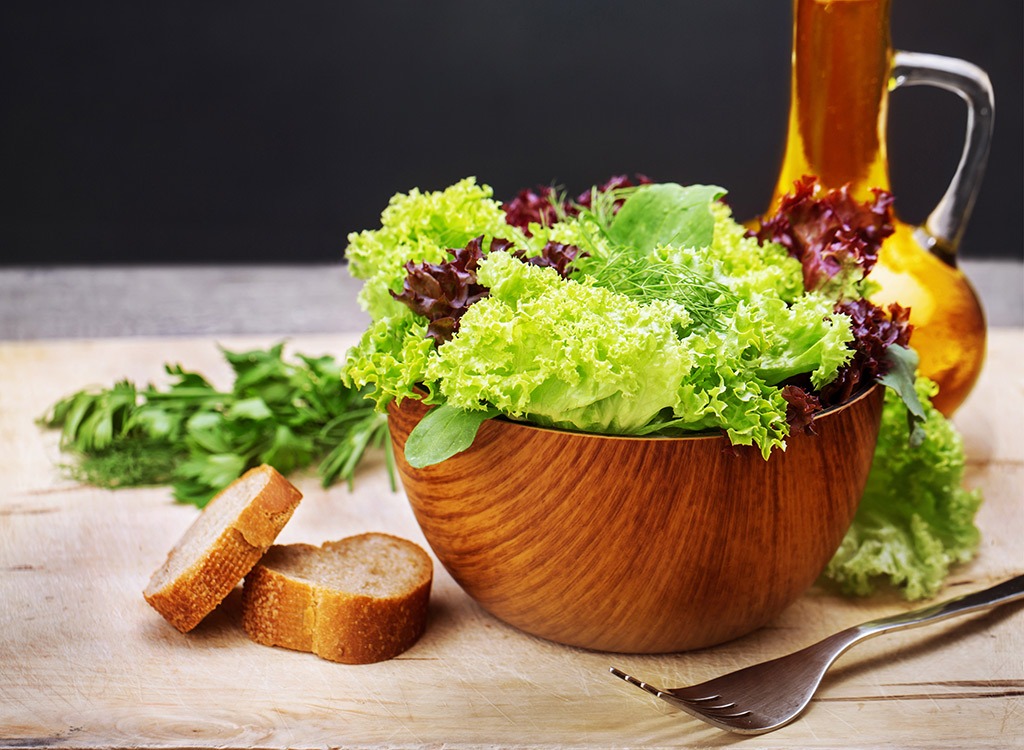
Loaded with polyphenols and antioxidants, EVOO (or extra virgin olive oil) is an amazingly healthful dressing base for your salads. But there are other oils with which to top your vegetables and greens that offer similar, if not more, nutritional benefits. Check 'em out!
Avocado Oil
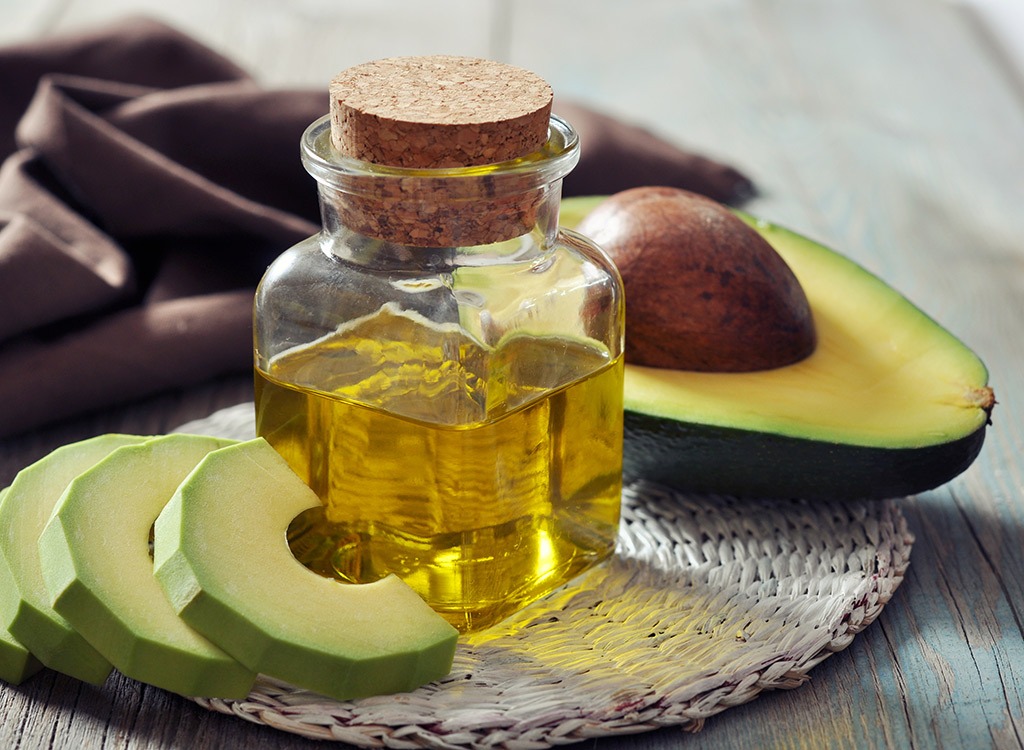
Made from pressed avocados, this oil is rich in heart-healthy monounsaturated fats that may help improve cholesterol and ward off hunger. It also contains vitamins B and E and bloat-banishing potassium. Add it to your fruit salad for a new twist on a classic dish.
Flaxseed Oil
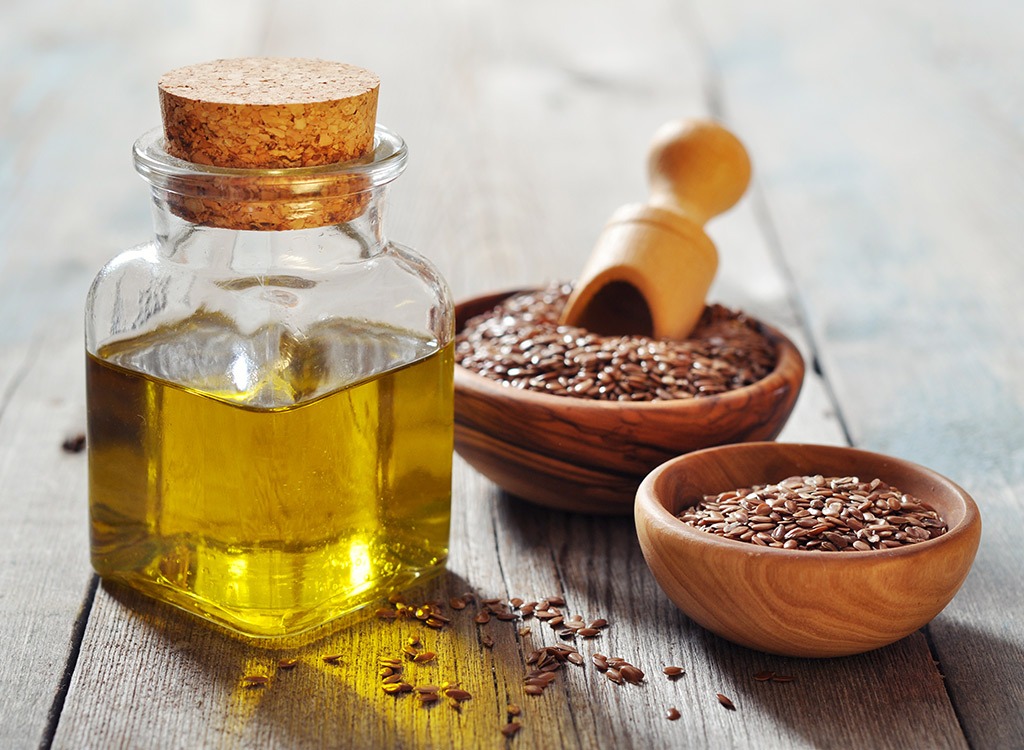
Also known as linseed oil—yes, the stuff you used in art class—this fat contains ALA, an essential omega-3 fatty acid that can aid weight maintenance and may reduce heart disease risks by promoting blood vessel health and reducing inflammation. Drizzle it on top of salads or use it instead of olive oil or mayo when whipping up pestos and tuna salads.
Walnut Oil
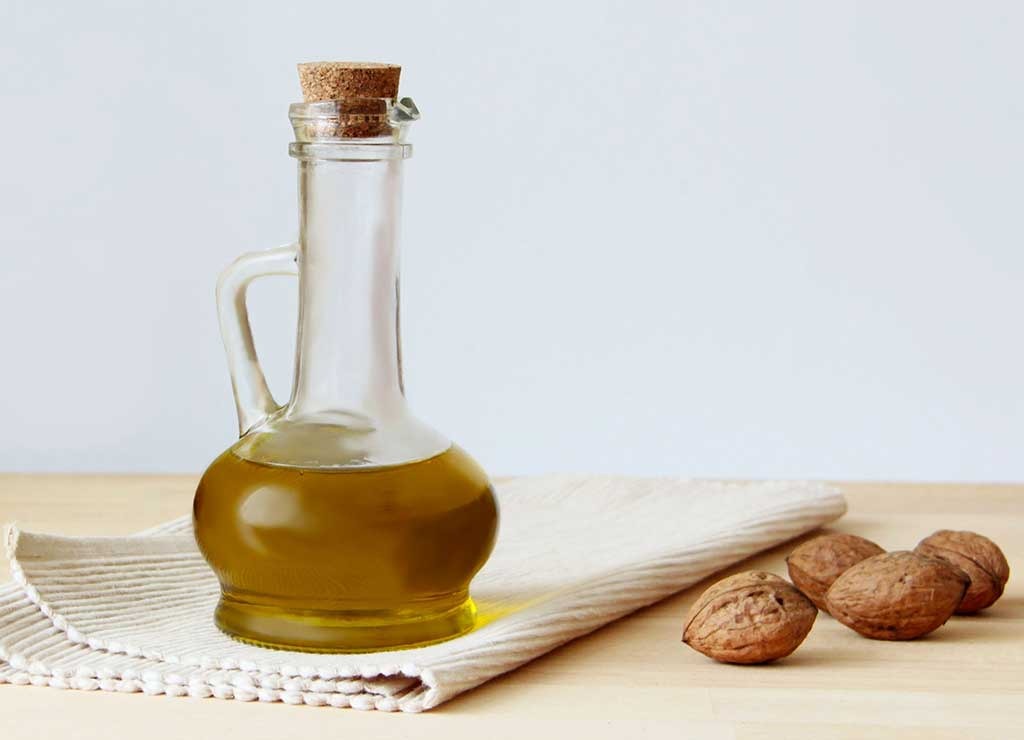
A small Pennsylvania State study found that a diet rich in walnuts and walnut oil may help the body respond better to stress and can also help keep diastolic blood pressure levels down. Walnut oil has a rich, nutty flavor. It contains polyunsaturated fatty acids which may increase diet-induced calorie burn and resting metabolic rate. And walnuts have more omega-3 fatty acids than any other nut. Mix with sherry vinegar, olive oil, cumin, and salt and pepper to make a salad dressing.
